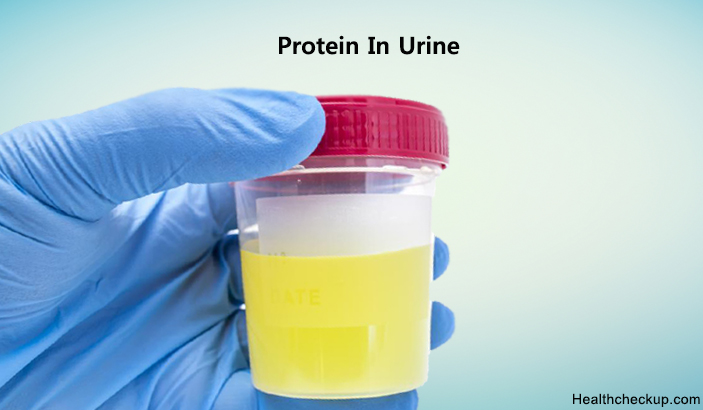Urine and its composition are important in a number of medical diagnostic procedures. Proteins are found in urine at varying levels. A protein in urine normal range is used as a standard against which all results are compared. The level of proteins in urine may temporarily rise due to diet, physical exertion and disease. Presence of unusually high levels of protein in urine is called Proteinuria or Albuminuria.
Types of Proteinuria
Medications and state of the individual may lead to proteinuria. This includes pregnancy, and some drugs administered to treat other ailments. In pregnancy, proteinuria is a result of intravascular haemolysis.
- Medicines that cause proteinuria are Aminoglycosides, Penicillins, Cephalosporins, Non-Steroidal Anti-Inflammatory Drugs, Griseofulvin Lithium, Amphotericin-B and Cuprimine.
- In case you are under medication, make sure to inform your doctor. He will determine if the proteinuria you have is as a result of medication you are taking or other causes.
There are two types of proteinuria and the two are differentiated by the amount of protein in the blood.
- Microalbuminuria: If the levels are only slightly elevated above the normal range of protein in the urine, it is called microalbuminuria.
- Macroalbuminuria: If there is a high elevation beyond normal, it is macroalbuminuria or proteinuria.
Protein in Urine Levels
Protein in Urine Normal Range
The protein in urine normal range is calculated in milligrams per deciliter. Protein in urine normal range is set at 20 mg/dL as the upper limit. The sample for urinalysis is collected randomly or at a time agreed on with your doctor. For better diagnostics, a doctor may order samples to be collected over a period of a day for the 24-hour proteinuria test. The 24 hour urine protein normal range is 80mg/dl in the lower limit.
From random samples and simple testing, it is possible to tell if there are proteins in urine. Though it does not give accurate measurements of the levels of each protein type, the protein in urine 1+ reporting system for proteinuria tests is still in wide use.
There are two tests for identifying proteinuria. They are the 24-hour urine test and the Spot urinalysis. One collects samples over a period of 24 hours while the other utilizes a randomly collected sample. If a randomly collected sample shows a problem with the levels of protein in your urine, your doctor may want you to have the 24-hour urine test.
Results from testing for proteinuria are classified into 24-hour urine analysis results and spot urine results. A further reading centred on the ration of albumin to creatinine is made from analyzing your urine in the laboratory. The 24 hour urine protein creatinine ratio must not exceed 0.15.
High Levels of Protein in Urine
High levels of protein in urine are above 20mg/dL. They vary depending on the test that you are undergoing. Having a high protein level in urine is an early sign of vascular damage. Medical professionals use it as a marker that you have general vascular dysfunction.
Low levels of Protein in Urine
Low levels of protein in urine are a sign of health. Levels of protein are often below 20mg/dL depending on the test you are having. In the 24-hour urine test and in spot urine tests, the lower limit is slightly higher at 30mg/dL.
Symptoms of Protein in Urine
When there is protein in your urine, you will experience one or more symptom. The symptoms of proteinuria vary depending on what is causing the proteinuria. Some of the symptoms to look out for are
- Dry itchy skin and trouble sleeping
- Hiccups and shortness of breath
- Nausea and vomiting
- Fatigue and frequent urination
- Swelling
If you have one or more of these symptoms, visit your doctor for a checkup.
How to Treat Proteinuria
Being diagnosed with proteinuria is disheartening. It is however not life threatening. With proper management, proteinuria will go away. You will need to implement some lifestyle changes. These will include better diet management. You will also be asked to stop smoking, drinking alcohol, and lose excess weight.
Medication may be given in the course of treating your proteinuria. Only use drugs prescribed by your doctor and approved for treatment of proteinuria. Follow the dosage of such medication faithfully.
A number of health problems can lead to proteinuria. They include high blood pressure, infections, drugs, diabetes and mediation, tumors such as multiple myeloma and kidney disease, Mild proteinuria is not indicative of a serious disorder. Nevertheless, elevated amounts of protein in your urine are not considered normal. Persistently high protein levels in urine outside the protein in urine normal range is often a sign of improperly functioning kidneys.
Medically Reviewed By

Professionally, a trained Microbiologist and Plant operator, Eustace is an experienced health content writer who is passionate about helping people lead a healthy life.









